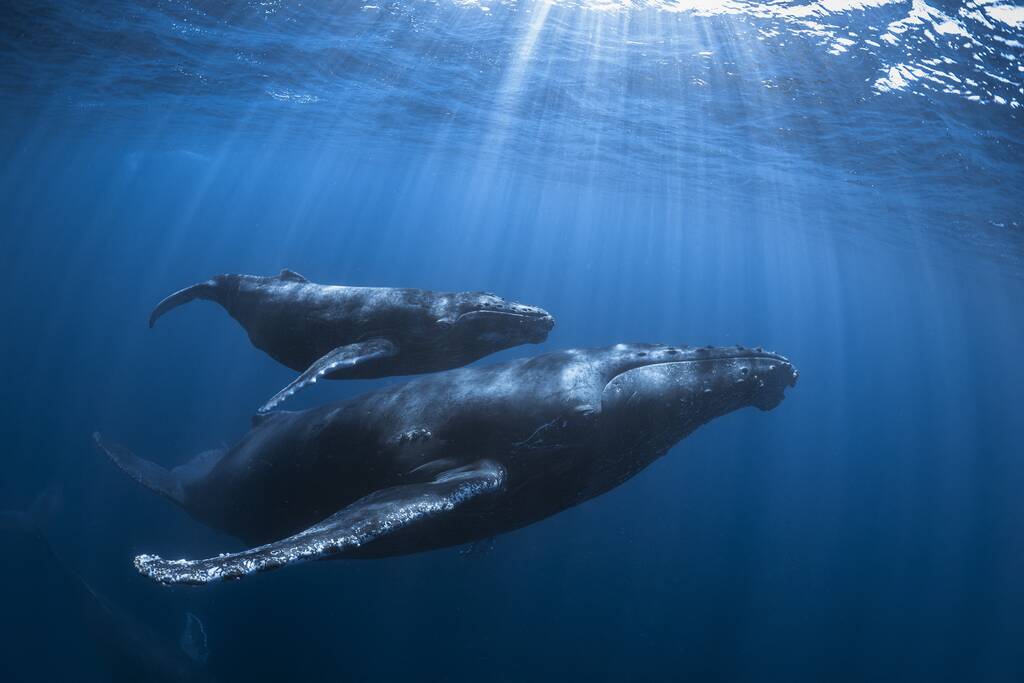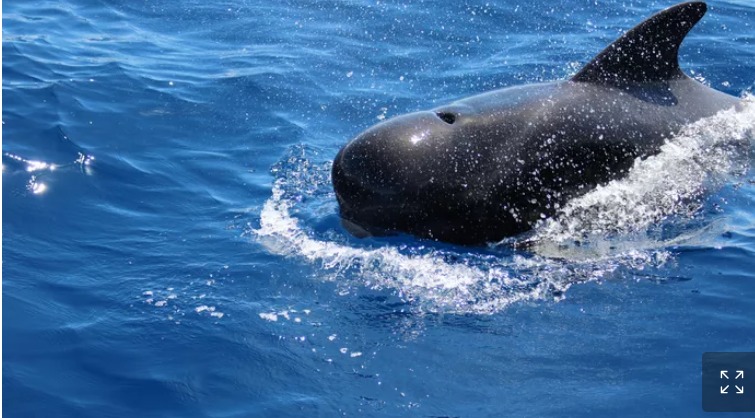
A male, first spotted off the coast of Colombia in 2013 and then again in 2022 near Zanzibar, has embarked on the longest known migration journey for this species, according to a study published Wednesday, December 11.
Three oceans, 13,000 kilometers, and a fierce desire to see the open sea. A humpback whale has set a distance record, most likely in search of a mate, reveals a study published on Wednesday, December 11, in the journal associated with the Royal Society of London.
A team of scientists identified an adult male who traveled from breeding grounds in Colombia, South America, to Zanzibar, Africa, between 2013 and 2022. This journey is the longest distance ever recorded for the species. Scientists suggest that factors related to reproduction and the environment may have driven the whale to undertake this long voyage.
13,046 kilometers
To determine the steps of this expedition, experts examined photos on Happywhale, an online platform that collects photos of whale flukes or tails, shared by scientists and individuals worldwide. The site uses artificial intelligence to automatically match similar individuals, allowing them to be identified and their journeys tracked.
The male in question was first photographed off the coast of Tribugá Bay, in northern Colombian Pacific waters, on July 10, 2013, where he was part of a « competitive group » of seven humpback whales. The same animal was later spotted off Fumba, in the Zanzibar Channel, in the southwest Indian Ocean, on August 22, 2022. This was 13,046 kilometers from where he had first been seen nine years earlier.
Researchers initially thought there was an error, explains Ted Cheeseman, co-founder of Happywhale and one of the study’s authors. But it was confirmed that it was indeed the same whale. Scientists then determined that it was a male because he was very active in the mating groups he traveled with and because of a photo of his genital area.
Some humpback whale populations, animals that undertake one of the longest seasonal migrations known among mammals, can travel more than 8,000 kilometers between their breeding grounds in tropical waters and colder regions where they find food. Therefore, it is not uncommon to see some of these cetaceans deviating from their usual migration patterns.
Climate change
But surprisingly, this male whale crossed several population groups between his starting point in South America and his endpoint in Africa, notes Ted Cheeseman. Another unusual aspect is that he undertook this journey as an adult. Indeed, when humpback whales reach maturity, « they usually follow very fixed and consistent migration patterns, » details the expert. « This whale did something completely different, » says Ted Cheeseman.
While scientists do not know exactly why the whale deviated so far, the study suggests that climate change and other environmental changes may have played a role, as well as the search for food. The paper also considers that the growth of the humpback whale population—these whales have rebounded in recent decades after being decimated by commercial whaling—could increase competition among males. This could drive animals to seek food and mates elsewhere.
« No humpback whale in the world lives in the waters of just one country, » Ted Cheeseman emphasized. « These are international and multinational waters. As researchers and as a community concerned with the oceans, we need to manage them accordingly, » pleaded the expert. This means regulating them better, to protect them from the multiple dangers of climate change and overfishing.



